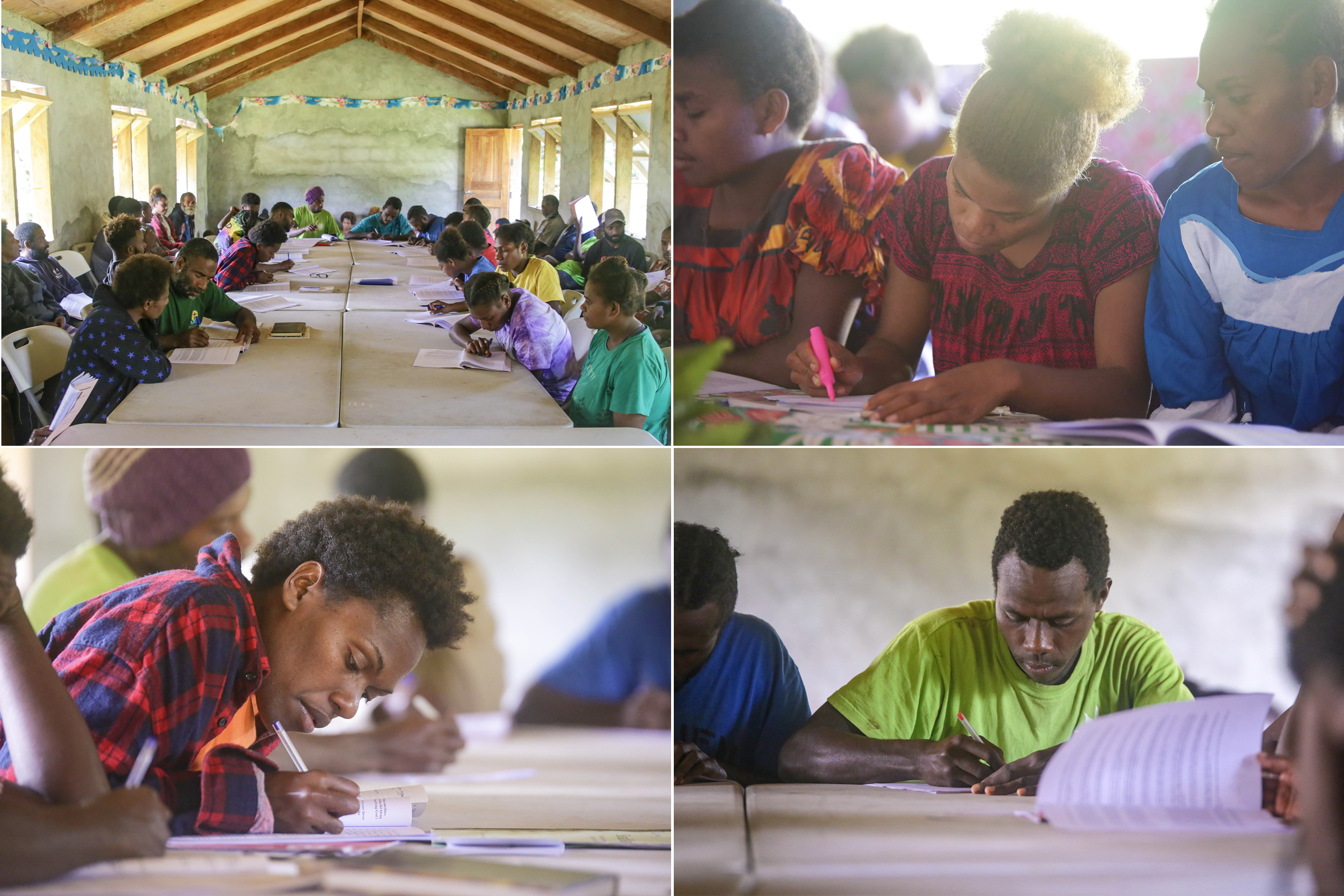
TANNA, Vanuatu — Chiefs and local leaders recently spoke with the News Service about their mounting anticipation for the completion of the Bahá’í House of Worship in Tanna, Vanuatu, conveying feelings of joy and a strong sense of hope for the unifying role of the temple in their society.
“Let it construct another temple in your heart,” said Chief Sam Suli Usamoli from Bethel village, West Tanna, in his comments about the House of Worship.
“Upon its completion, we should enter the House of Worship and let the words chanted within it sink deep into our hearts. … Then will conflicting views be greatly reduced as people of diverse beliefs come together with unity of thought to consult about their future.”

Other comments described how the temple fulfils certain local traditions that point to a day when people will experience greater togetherness.
“The arrival of the temple and the impact it has already had on the island affirm the Tannese tradition that our people, like separate canes, will one day be bound together into one bundle,” said Chief Tom Wapin from Imafin village, North Tanna.
“You can break one cane, but you cannot break a bundle,” he said.
Other comments focussed on the significance of the House of Worship—referred to in the Bahá’í writings as a Mashriqu’l-Adhkár, meaning “Dawning-place of the Praise of God”—as a sacred space open to all, a place where prayer and contemplation inspire service to society.
“Seeing that diverse groups of people are already praying and serving together gives me hope that people of different faiths will walk as one, and a better life will come,” said Hellen Wap, representative of a local church.
She adds: “When I hear about the Bahá’í concept of unity in diversity it is like a bright glowing light, to which each person will add their own light.”
Chief Lawhva Kowiewi Tabe of the Lowinio tribe, West Tanna, echoed these sentiments, stating: “As chiefs, we strive to assist our people with difficult issues, and the House of Worship will assist us in this. I am extremely happy that all of us chiefs in Tanna will be united in its embrace and even more inspired to serve our society.”

Referring to the growing consciousness of the principle of the oneness of humanity, Nalau Manakel, member of the Bahá’í National Spiritual Assembly of Vanuatu, stated: “Ever since the unveiling of the temple’s design in 2017, we have been seeing more and more people who wish to pray together in spaces dedicated to collective worship.”
Joe Nambuan, a local leader from West North Tanna, adds: “Diverse people are beginning to pray together in a way previously unseen. … The Bahá’í House of Worship is a peace maker. It will assist communities to establish and maintain unity.”

Elody Nalawas, member of a Bahá’í Local Spiritual Assembly in Tanna, elaborates further, explaining how the desire to contribute to a culture of peace is also being fostered through Bahá’í educational programs that build capacity for service to society.
“People of all backgrounds, inspired by the temple, express the wish to serve their communities but ask ‘how shall we do it?’
“By participating in Bahá’í educational initiatives, they develop their capacity to contribute to, for example, the moral education of youth and children. Many are undertaking activities for social action, such as agricultural initiatives concerned with food security. Such efforts allow different people to come together, consult, and work collectively to address different social issues in their communities.”
With steady progress in the construction of the local House of Worship, recent milestones include the completion of the steel structure of the central edifice, its roof, and installation of the ceiling timber framing. Interior clad ceiling panels have also begun to be set in place.